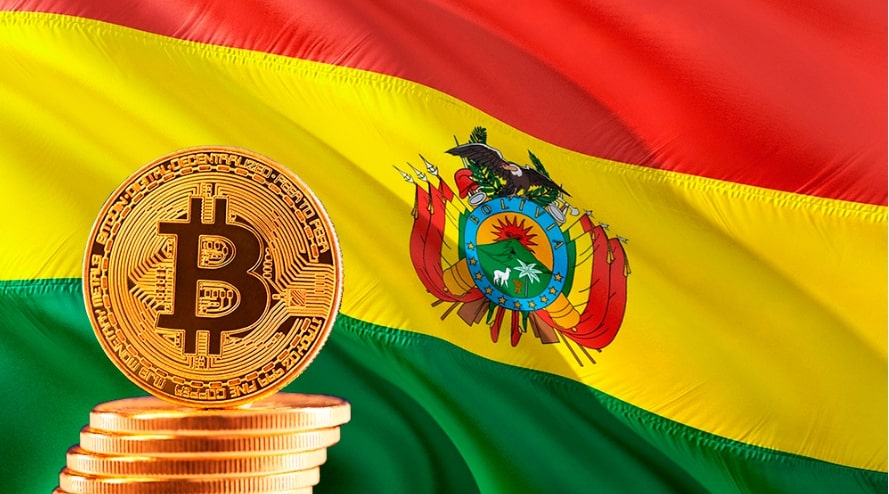Bolivia’s Crypto Boom: $430M in Transactions as Virtual Asset Payments Surge 630% in a Year
Key Takeaways:
- Bolivia sees over $430 million in crypto transactions since mid-2024, a 630% YoY increase.
- Binance dominates digital rails, while retail users drive 86% of virtual asset operations.
- New legal framework and financial literacy programs aim to ensure secure adoption and regulatory compliance.
Crypto is gaining serious momentum in Bolivia. Just one year after easing restrictions on virtual assets, the Bolivian central bank reports a staggering rise in digital payments and trading volumes. The boom comes alongside a sweeping legal overhaul and nationwide education campaign designed to modernize the country’s financial system.

12-Month Crypto Volume Jumps from $46.5M to $430M
According to a June 27 release from the Banco Central de Bolivia (BCB), the volume of virtual asset transactions exploded from $46.5 million in the first half of 2024 to $294 million in the same period of 2025. This marks a year-over-year surge of over 630%.
The total value of crypto transactions reached $430 million between June 2024 and June 2025, following the enactment of Resolution No. 082/2024, which officially authorized the use of electronic payment instruments for virtual asset operations.
The BCB attributes the surge to better legal clarity and a growing demand by the public who are finding it more convenient to use cryptocurrency for cross-border payments, remittances and business transactions – particularly for many micro and small companies.
Read More: Bitso Introduces JUNO and MXNB to Revolutionize Cross-Border Payments in Latin America
Retail-Led Adoption and Binance-Led Infrastructure
Crypto mania in Bolivia has largely been a retail phenomenon. Individuals (referred to as “natural persons”) made up 86% of all virtual asset operations, and among those, 77% were male, according to the Financial System Supervisory Authority (ASFI).
Between July 2024 and May 2025, crypto transactions through the financial system jumped twelvefold to 10,193 operations, valued at over Bs611 million (approx. $88 million).
Binance-powered payment channels accounted for the majority of volume. Although the BCB did not disclose precise market share data, the digital rails tied to Binance dominated the flow of crypto in the country, especially in retail-facing transactions.
Public Sector Joins in, Fuel Imports Paid in Crypto
The use of crypto in Bolivia has extended beyond individual and SME users. Bolivia Bolivia’s national energy company, YPFB, started settling contracts for fuel imports with digital assets on March 13, 2025. The decision was driven by acute dollar shortage and strain in fuel supply.
That was the first state-sanctioned Bitcoin use in the public sector in Bolivia and a sign that the government is increasingly trusting blockchain-based settlement capabilities.
The central bank has confirmed that it will now publish quarterly dashboards on exchange activity and will work with Bolivia’s tax authority (SIN) to align digital wallet activity with existing tax systems, including VAT tracking.

Legal Framework Tightens with Supreme Decree 5384
In response to increasing volume and risk, Bolivia issued Supreme Decree No. 5384 in May 2025, providing formal regulation of virtual assets and Fintech service providers.
Key features of the decree include:
- Definitions for virtual assets, tokenized assets, blockchain networks, and custody structures.
- Licensing requirements for Virtual Asset Service Providers (VASPs).
- Mandatory AML/CFT compliance aligned with GAFILAT (Latin American Financial Action Task Force) standards.
- A 40-working-day window for ASFI to issue implementing rules.
Read More: $190 Million in Crypto Washed: Australia Cuts Off ‘Sophisticated’ Money Laundering Ring
The decree establishes the framework for Bolivia’s virtual asset landscape, providing clarity for both startups that want to operate in Bolivia, as well as the legacy and international financial system that want to work with the country.
Financial Literacy Becomes National Priority
To mitigate the dangers of rapid adoption however, hefty investment towards public education has already been made by Bolivia. The BCB has initiated a broad campaign to promote financial literacy with in-person policy workshops in all nine of the country’s departments.
Topics covered include:
- Managing private keys and wallets
- Identifying deep-fake scams and phishing tactics
- Understanding price volatility and digital asset taxation
- Avoiding custodial wallet vulnerabilities
- Cross-checking wallet domains to prevent fraud
The moves by the bank are designed to allow citizens — not just early adopters — to participate in the digital economy in a safe and responsible manner. Some of the training modules that are now live include spotting scams on WhatsApp, after recent attempts to scam users in La Paz.
Oversight, Monitoring, and Risk Management
The central bank and financial police are taking a more proactive approach to keeping pace with the burgeoning crypto traffic. From now on, all banks, which are regulated on the territory of Bolivia, are obliged to:
- Submit daily reports on crypto outflows
- Conduct real-time screenings against the U.S. Office of Foreign Assets Control (OFAC) sanctions list
- Flag suspicious activity for enhanced investigation
From July 2024 until May 2025, 27 accounts were identified for review but no bans or fines were handed down. The officials stressed that these accounts had been flagged as a result of cautionary framing.
Importantly, the central bank also said custodian wallets are not protected under the country’s central deposit insurance system. Users are urged to keep private keys offline and use self-custody whenever that’s an option.
The post Bolivia’s Crypto Boom: $430M in Transactions as Virtual Asset Payments Surge 630% in a Year appeared first on CryptoNinjas.
CryptoNinjas




















